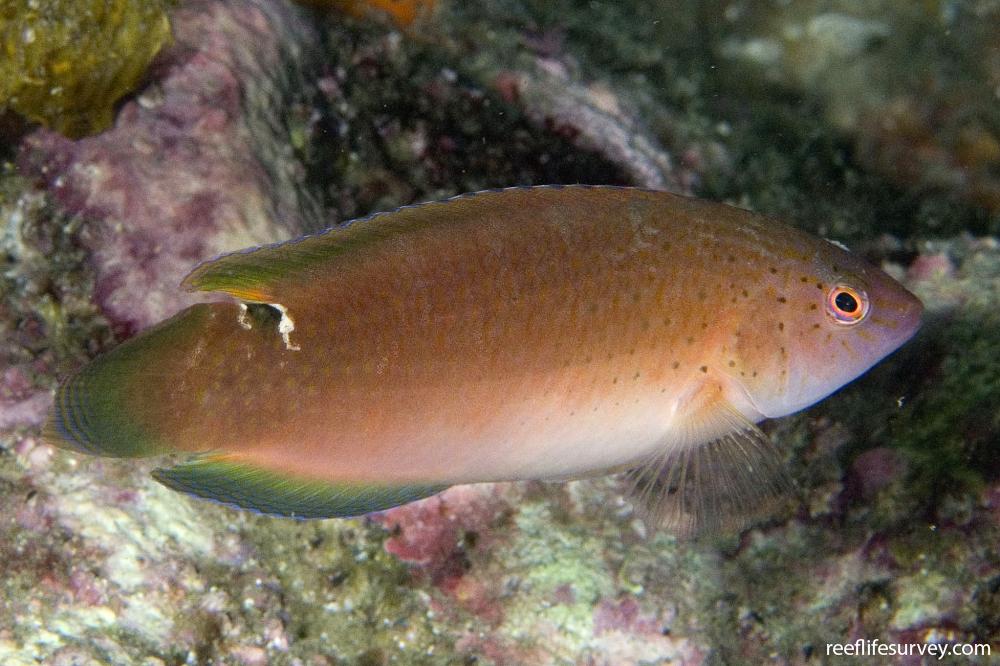Austrolabrus maculatus
Black-spotted wrasseSimilar Species
Distribution
Temperate Australasia
Description
Distinctive colour pattern with a red-brown, black-spotted upper body, and white belly. Juveniles and females also have a white bar in front of the tail and a white-edged black spot below the end of the dorsal fin. The species has a distributional gap in the Victoria region, with the consequence that the southwestern and eastern Australian populations have diverged and acquired slightly different characteristics. Southwestern fish are common in shallow depths among seaweeds on reefs, whereas New South Wales fish most frequently occur among sponges below 20 m depth.
Information
Max Size: 13 cm
Sea Temperature Range: 13.3-24.6°C
Depth: 10-40m
Habitat Generalization Index: 21.32
Also referred to as the SGI (Species Generalisation Index), this describes the habitat niche breadth of the species. Species with values less than 15 are found in a relatively narrow range of reef habitat types (specialists), while those over 25 may be found on most hard substrates within their range (generalists). Learn more here.
Conservation and Rarity
IUCN Status: Least Concern
Occurrence: Common (45.3% of sites)
Occurrence describes how often the species is found on surveys within its distribution. It is calculated as the % of reef sites surveyed by RLS divers across all the ecoregions in which the species has been observed
Abundance: Few (4 per transect)
Abundance is calculated as the average number of individuals recorded per RLS transect, where present.
Edit by: GJ Edgar. 2008. Australian Marine Life. New Holland, Sydney





















